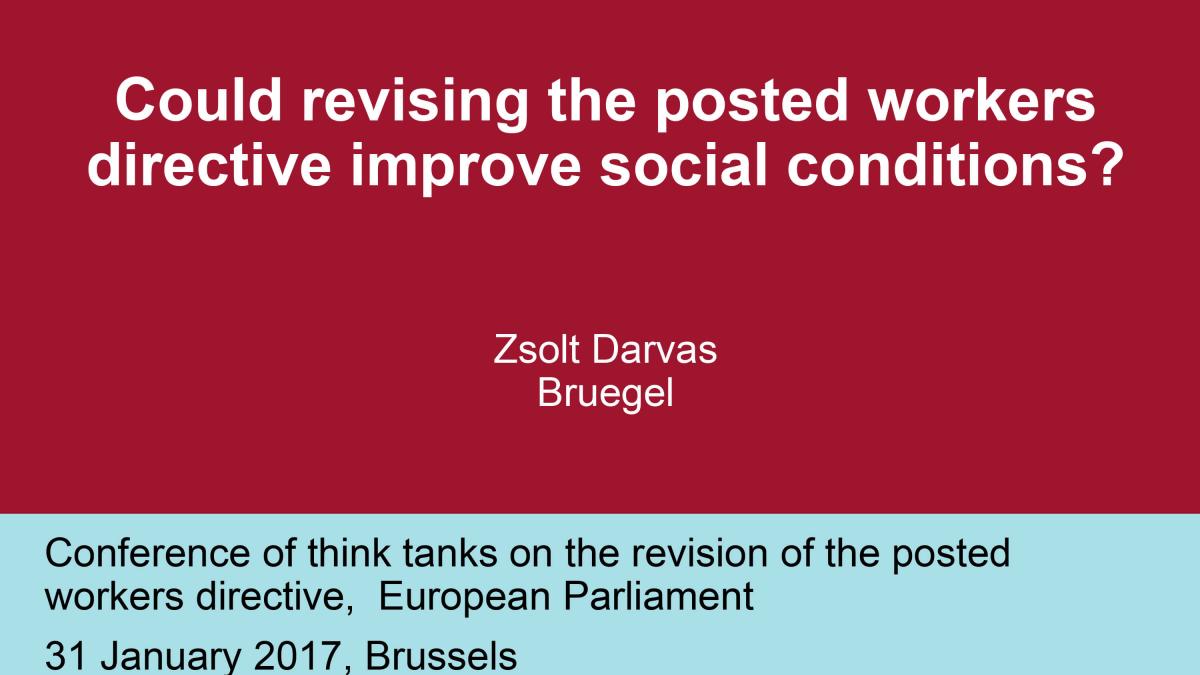Could revising the posted workers directive improve social conditions?
This presentation was delivered in Brussels on 31 January 2017 at a hearing of think-tanks, to advise the European Parliament on the revision of the P

In this parliamentary testimony Zsolt Darvas discussed the importance of posted workers in driving down wages/social conditions in high-wage EU countries and made several conclusions on the state of the policy.
Firstly, economic integration, a founding principle of the EU, has benefits. But there are losers who should be helped.
Secondly, there will always be competition between low-wage and high-wage countries, both from inside and outside the EU. Posted workers play a minor role in this competition. The impacts of goods imports and offshoring production on jobs, wages and social standards in high-wage countries are much larger than the impact of posted workers. It is incorrect to refer to “social dumping” in relation to posted workers.
Thirdly, certain aspects of the Posting of Workers Directive could be addressed, but this is not the main priority. The European Commission’s proposal for the revision of the Directive clarifies five main issues, yet it would not change the legal framework fundamentally. The proposed changes might help to limit the abuses of the Directive.
Fourth, the number of undeclared workers in high-wage countries is more than 100-times the number of posted workers. Therefore, the fight against undeclared work should be the top priority.
For more information on this topic please see Zsolt Darvas and Elena Vaccarino's blog: “Social dumping” and posted workers: a new clash within the EU



